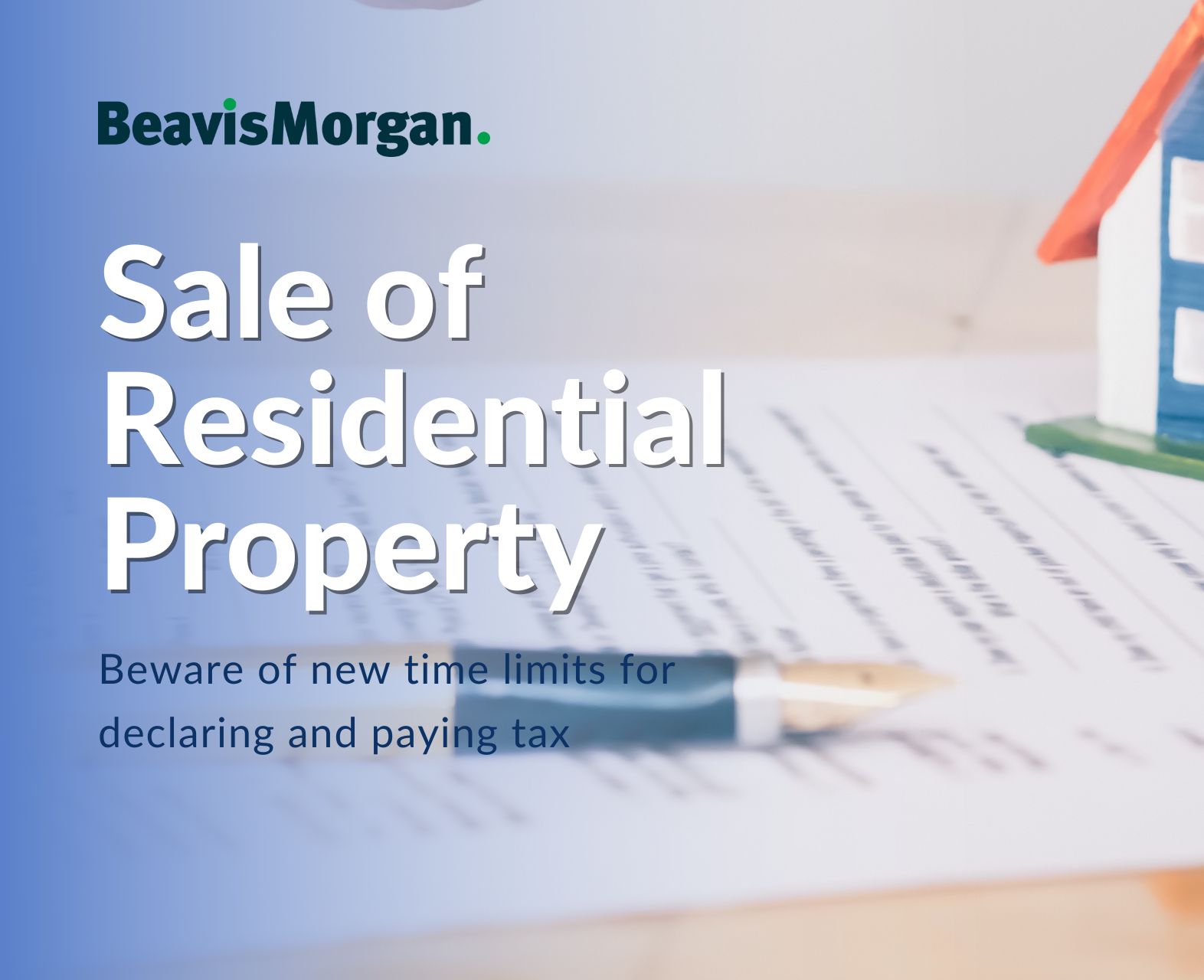Article first published in Solicitors Journal.
By Neal Groves, Senior Personal Tax Director, Beavis Morgan LLP
New rules for reporting and paying Capital Gains Tax (CGT) on residential property have been in place since April 2020. However, taxpayers are still unaware of these rules and are being caught out.
If a UK residential property is sold on which CGT is payable, the gain must be reported, and the tax paid within 60 days of completing on the sale.
The rules apply whether you are UK resident or non-UK resident. The only difference being that a non-resident is required to report sales of UK property within 60 days, even if there is no tax to pay. A UK resident is only required to report a gain if there is tax to pay.
The gain must be reported online on a “Capital Gains on UK Property account”. You will need a Government Gateway user ID and password to do this.
HMRC imposes interest and penalties if you do not report and pay gains on UK property within the 60-day timeframe.
As the 60-day deadline is tight it is essential to be ready to make the declaration. This means:
- Having your Gateway account set up in advance.
- Preparing a CGT computation of the tax arising, with the help of your tax advisor.
Your tax agent can submit the CGT declaration on your behalf, but this still requires you to have a Government Gateway account.
We would recommend using a professional to prepare the CGT computation for you and it is always advisable to get advice in this regard as there are a number of sometimes complex reliefs and allowances that can be used to reduce the tax payable.
The CGT computation
In the simplest scenario, where a property is sold which has been your only or main residence throughout the period of ownership, the gain arising is exempt from CGT and no report needs to be made.
The gain on an investment property is calculated as the difference between the sales proceeds of the property (after costs of sale) less how much the property cost originally and any costs of purchase. If any enhancement expenditure of a capital nature has been incurred on the property this can help to reduce the gain on the property.
What if a property has been your main residence for a period but not the entire period of ownership? In this scenario the gain can be partially relieved by main residence relief, leaving part of the gain chargeable to CGT.
This is perhaps best demonstrated by a recent scenario on which we advised:
| · Mr and Mrs A owned a property in London in which they lived as their main home.
· In March 2021, Mr and Mrs A completed on the sale of their London home for £5million. · They lived in the property as their main home from the date the property was purchased in April 2008 for £2million. · In April 2012 Mr A went to work full time in Germany, Mrs A accompanied him, and the property was let in their absence. · Mr A returned to work in London in April 2017 and they both lived in the property again until April 2019 when the property was let and eventually sold.
The gain arising is: £5,000,000 – £2,000,000 = £3,000,000 However main residence relief can be claimed for: 1) The period they lived in the property as their main home. 2) Any period when working overseas. 3) The final 9 months of ownership.
Across the entire 13-year ownership period the only period that the property was not occupied as the main residence or was not deemed to be the main residence is the 15-month period from April 2019 to June 2020. A total of £2,700,000 main residence relief was able to be claimed leaving a chargeable gain of only £300,000 (£150,000 each) on which CGT was payable at the residential property rate of 28%. As the sale completed in March 2021 this had to be disclosed to HMRC online within 60 days and the tax paid at the same time. |
There are several reliefs and deemed periods of occupation that can be claimed in certain scenarios. These may not always be obvious and proper advice can ensure that you pay the right amount of tax.
For advice and assistance, contact Neal Groves at Beavis Morgan on T: +44 (0)20 7549 2411 or E: neal.groves@beavismorgan.com. www.beavismorgan.com

